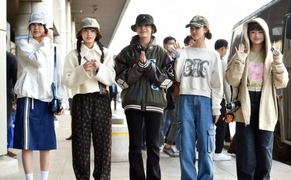 |
A comprehensive study examining 20 years of change in Korean society shows that the public’s confidence in politics has reached its lowest point ever, while trust in large corporations continues to rise. Citizens, weary of political strife and slow progress, are increasingly rallying behind institutions that deliver tangible economic results — a sentiment vividly reflected in their fascination with recent “Kkanbu meetings” among corporate leaders.
According to the Korea General Social Survey (KGSS) released on November 9, only 6% of Koreans say they are satisfied with the country’s politics — the lowest level since the survey began in 2003. Not a single respondent answered “very satisfied.” Over the past two decades, the satisfaction rate has never exceeded 30%. Analysts attribute the decline to deepening polarization between rival camps following two presidential impeachments, which have fueled public fatigue and distrust toward politics.
By contrast, Koreans’ trust in major corporations has steadily risen from 62% in 2003 to 83% this year — more than double the trust level in the National Assembly, which remains stuck below 30%. The approval rating for the presidential office has dropped to a record-low 39%, while public confidence in the judiciary, prosecution, statistical agencies, and election authorities also hit historic lows.
Public enthusiasm for the recent meeting between Samsung Electronics Chairman Lee Jae-yong, Hyundai Motor Group Chairman Chung Eui-sun, and NVIDIA CEO Jensen Huang underscores this trend. Business leaders, now seen as symbols of innovation and economic strength, enjoy celebrity-like status. The public appears eager to support those who “get things done” in the real economy rather than politicians locked in endless partisan battles.
Trust in traditional media has also eroded. Faith in television networks fell from 71% in 2003 to 61% this year, and in newspapers from 66% to 51% — the lowest ever recorded. The decline coincides with the rise of social media, YouTube, and online communities, which have become dominant sources of information but also breeding grounds for misinformation.
Meanwhile, trust in the medical sector, which peaked at 89% in 2023, slipped to 82% amid ongoing disputes between doctors and the government. Civil society organizations have also seen their credibility plunge, from 79% in 2003 to just 51% today.
A shift toward centrism — and away from unification dreams
The survey also revealed a broadening centrist tendency among Koreans. Those identifying as politically moderate grew from 27% in 2003 to 38% in 2025. The ratio of progressives (31%) and conservatives (31%) is now evenly balanced, with centrists slightly ahead — a sign that ideological loyalties have softened and voters are more pragmatic, shifting positions according to policy performance or national events.
The public’s emotional distance from North Korea has also widened. Only 5% now say they feel close to the North, compared with 28% two decades ago. In contrast, 11% say they feel closer to Japan — a reversal from the early 2000s — while affinity toward the United States has surged to 78%, up from 50% in 2003.
The shift in perception has affected views on reunification. For the first time, those who said reunification is “not really necessary” (38%) outnumbered those who said it is “somewhat necessary” (34%). When combined, those in favor of reunification fell below 50% for the first time.
Since 2009, a majority of respondents have described North Korea not as a “partner for cooperation” but as an “object of vigilance,” except during the 2018 inter-Korean summit. The findings highlight how South Koreans — once driven by the dream of national unity — now prioritize stability, economic growth, and pragmatic diplomacy over ideology or sentiment.
Most Read
-
1
-
2
-
3
-
4
-
5
-
6
-
7





















